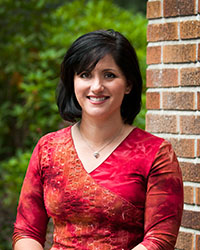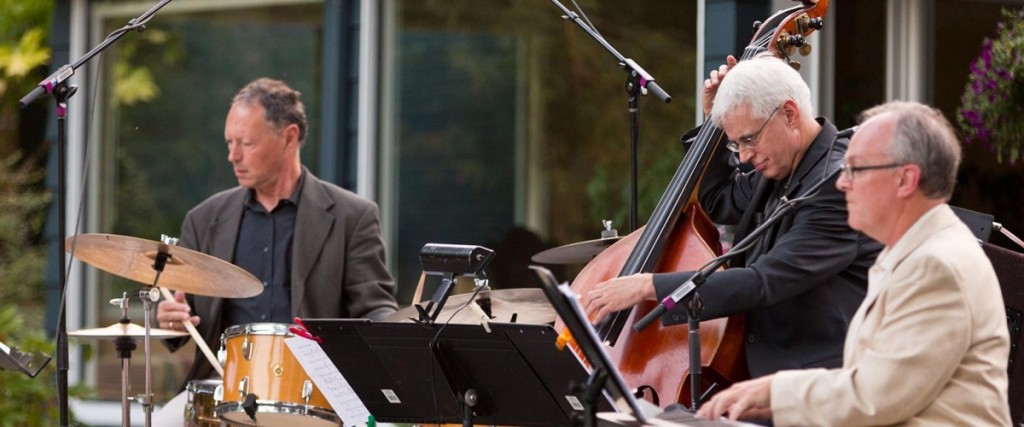Page 21 • (387 results in 0.024 seconds)
-

During the 2022-2023 academic year, 237 PLU students participated in global and local study away programs to acquire new perspectives on critical global issues, advance their language and intercultural skills, form valuable new contacts and lasting connections, and advance their academic and career trajectory. We…
learning both in and outside of classrooms. Qualifying photos for this category may depict student interaction with their host communities and their natural environment. Examples may include students in internship and service projects, field study, culturally relevant activities, group study tours, etc.1st Place Jessa de los Reyes “A Bridge to Friendship” College comes in many forms. This picture proves just that. This is from a 5 day trip in the winter forests of Norway. Hard to believe, but having
-

Life of the Mind: Democracy & the American Dream – for DREAMers https://www.youtube.com/watch?v=47Pk401CS6M About the DREAM Act – and DREAMers Named after the Development, Relief and Education for Alien Minors Act, a measure first proposed in 2001, DREAMers are undocumented immigrant high-school graduates who are…
polity. We would want our government to fix this situation. In short, we would want a responsive, just and humane immigration policy. We would want to be treated fairly. As a professor, I am fortunate to be able to devote my life to teaching students about the experiences of those who are excluded. I am able to help students understand that the privilege of their education includes a responsibility to act in a way that makes America live up to her ideals. Based on my research, I believe that if we
-

Duke Paulson ‘93 graduated from PLU in 1993 with a major in biology and a minor in psychology. While at PLU, he was on the swim and rowing teams, played soccer for a bit, and was heavily involved in Young Life. Today, he’s executive director…
I knew and posted on Facebook, looking for a large facility space that we could use as a shelter. I got about 25 leads, but it was an old PLU friend who actually gave me the phone number of Bellarmine’s president. Bellarmine (a well-known Catholic high school in Tacoma) was interested. They talked to their board, and got back to me within 48 hours. The board took four days to get an MOU together, starting on Thursday. By Monday, we had things set up and going. So they were responsive and a
-
PLU’s choral program has a long history of success, and is recognized regionally and nationally for its excellence in ensemble performance, academic structure and rigor, and placement of graduates
students experience a thorough curriculum, taught by a highly qualified and cohesive full-time and adjunct faculty. Highlights of the choral music education degree include courses in elementary music methods and materials, secondary choral methods, secondary choral literature, vocal pedagogy, and four semesters of conducting. This is one of the most extensive undergraduate choral music education degrees available. PLU graduates are consistently placed in outstanding elementary and secondary school
-

Kallan Campa is excited to learn more about the complexities of the relationship between behavior and participation in physical activity. She shares about what inspired her to join the MSK program and what she is looking forward to learn. 1. What is one fun fact…
. What inspired you to join the MSK program at PLU? I have had a wonderful experience in my undergrad within the PLU Kinesiology department. During my junior and senior years, I took pedagogy and psychology classes in the kinesiology department and became interested in learning how people learn. I decided that I would start looking at graduate programs to find a good fit for me. I looked into several programs, but ultimately once I got word that PLU was starting the MSK program, my mind was set. Each
-
The low-residency MFA in Creative Writing offered by The Rainier Writing Workshop is a three-year program in the study of poetry, fiction, and nonfiction.
“Pedagogy Sessions” will also be offered to the cohort; these classes explore issues in the teaching of creative writing. ENGL 513: Third Year Mentorship / ENGL 599: Thesis. The participant is expected to submit 6 mailings to the mentor during the year. The main tasks of the year include: completing the Critical Paper (due on December 15); completing the Creative Thesis (due on April 30); submitting a final program bibliography; and preparing to deliver a class presentation and a graduate reading in the
-
The Office of the Provost works in close collaboration with the Wild Hope Center for Vocation to facilitate New Faculty Orientation, and to provide various New Faculty Development opportunities
(University Photographer) Hauge Admin lobby or Red Square 11:15-12:00 | Who are the students you will encounter on the first day of class? Who will help you respond to student needs? Kristin Plaehn (Executive Director of the Center for Student Success) Dr. Eva Frey (Dean of Students) 12:00 | Break before lunch 12:15 | Lunch is served in AUC Regency 1:00 | Inclusive Pedagogy and The Culture of Teaching and Learning at PLU Dr. Jennifer Smith (Dean of Inclusive Excellence; Gender, Sexuality and Race Studies
-
PLU’s choral program has a long history of success, and is recognized regionally and nationally for its excellence in ensemble performance, academic structure and rigor, and placement of graduates
Music. Our students experience a thorough curriculum, taught by a highly qualified and cohesive full-time and adjunct faculty. Highlights of the choral music education degree include courses in elementary music methods and materials, secondary choral methods, secondary choral literature, vocal pedagogy, and four semesters of conducting. This is one of the most extensive undergraduate choral music education degrees available. PLU graduates are consistently placed in outstanding elementary and
-

Grayson Nottage ’23 has wanted to become a middle school science teacher ever since she was a middle school science student. She admired many of her own science teachers, and aspires to become the sort of educator that inspires and excites students about science. Next…
PLU with a geosciences degree. She won’t go far, at least right away, because this fall she will begin PLU’s Master of Arts in Education (MAE) program and continue her work as a scholar in PLU’s Culturally Sustaining STEM (CS-STEM) Teacher Program. How has your participation in the CS-STEM program at PLU shaped your experience? I am part of the Noyce CS-STEM Scholarship Program, and Professor Andrea Munro, who taught the STEM education class in the fall, pointed out to me that PLU had created a CS
-

Jazz music is a dish best served live and in person. A fusion of African-American, European-American and international musical traditions, jazz is known for its energy, creativity and ingenuity. Its iconic founding fathers and mothers are revered as some of the greatest improvisational artists in…
for the lively genre, but jazz music may be most at home in culturally vibrant metropolitan nightclubs. New Orleans, Chicago and New York City are often cited as the country’s most well-known sites of historic, quintessential jazz clubs, but Seattle, just 40 miles north of Pacific Lutheran University, has been a West Coast Jazz haven for nearly 100 years. On Sunday, May 3, PLU faculty and student jazz musicians will pilgrimage to the Emerald City to showcase their chops at Tula’s Jazz Club in
Do you have any feedback for us? If so, feel free to use our Feedback Form.


